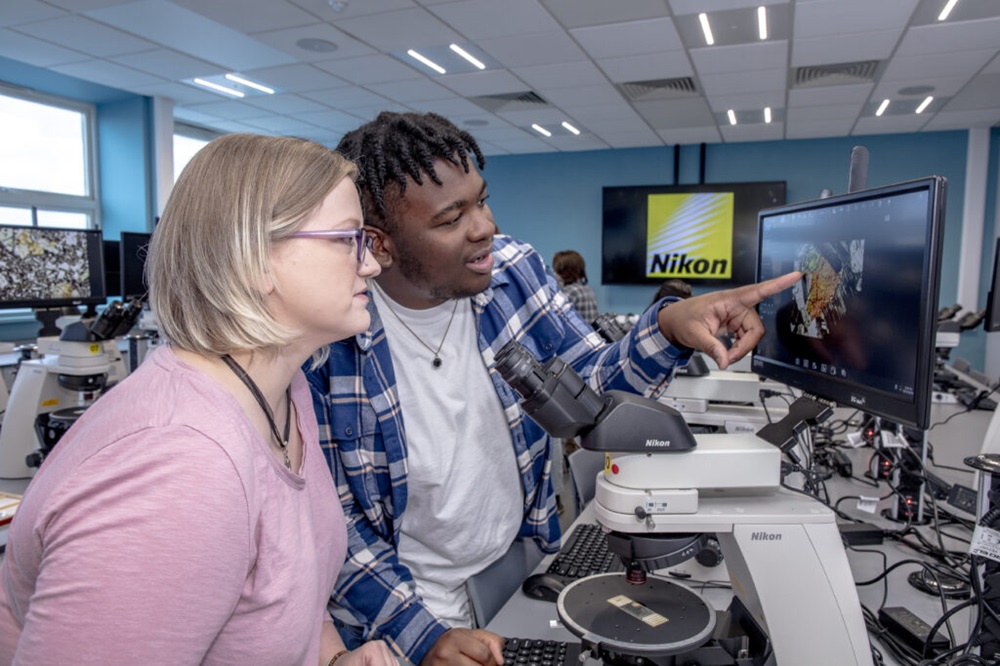The University of Plymouth will become the home of Europe’s first 5G interactive microscope labs. This advanced facility will transform the learning experience of students on a number of science courses.
Comprising 150 microscopes, the labs are the result of a partnership between the university and two global technology companies, Nikon and Ostec Instruments. They also reflect recent changes to courses, aligning their content even more closely with the UN’s Sustainable Development Goals.
Professor Kevin Jones, executive dean of science and engineering at the University of Plymouth, says: “These new labs will transform our teaching and revolutionise the learning experience for our students. They will get to explore a wider range of specimens in greater detail than ever before. By getting the opportunity to use cutting-edge technology, our students will also gain first-hand experience of using systems that will either match – or in many cases exceed – those they will work with once they graduate.”
Across two spaces in the university’s Davy Building, students will have access to 60 polarising microscopes and 20 biological microscopes, as well as 60 low-power microscopes used to analyse larger specimens. In addition to the microscopes, each stand will have a digital screen that can link to others across the room to share the same content.
The lecturer will have his or her own camera set-up linked to screens on each of the microscope stands, and the screens will also display QR codes so that students can bring up details of what they have been scrutinising on their mobile devices. Importantly, the combination of microscope and screen displays, as well as desks of adjustable height, will make the set-up more accessible to students with sight or mobility difficulties.
For further information www.nikonmetrology.com















